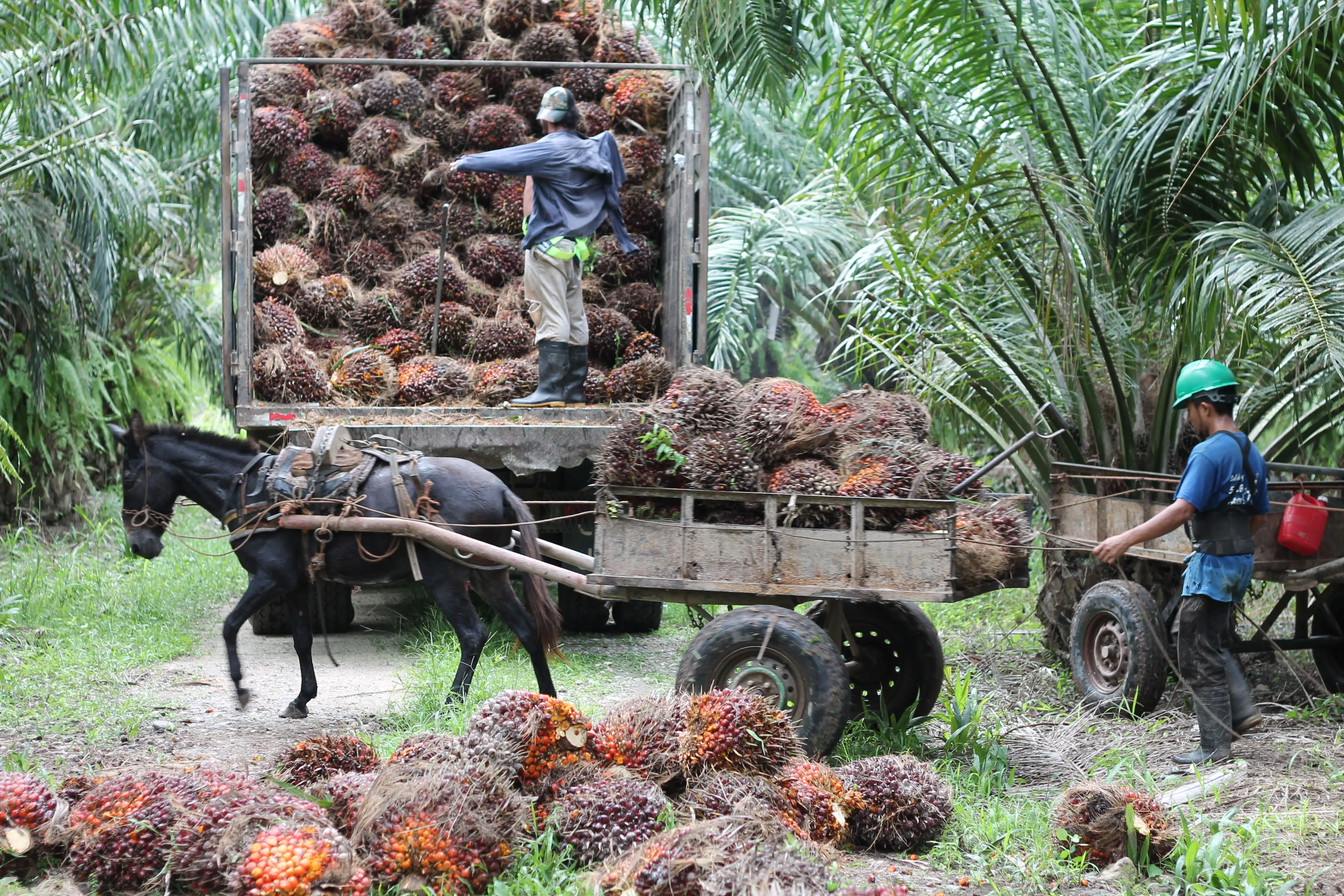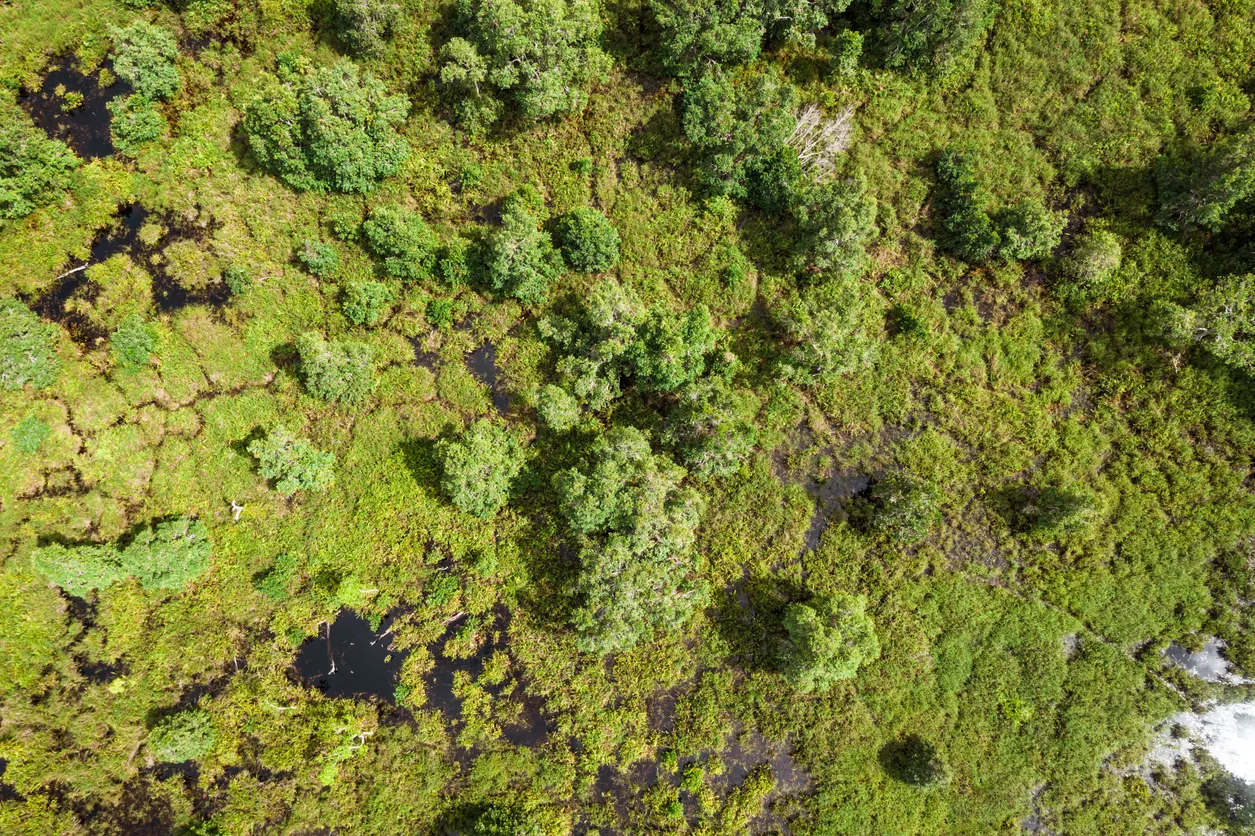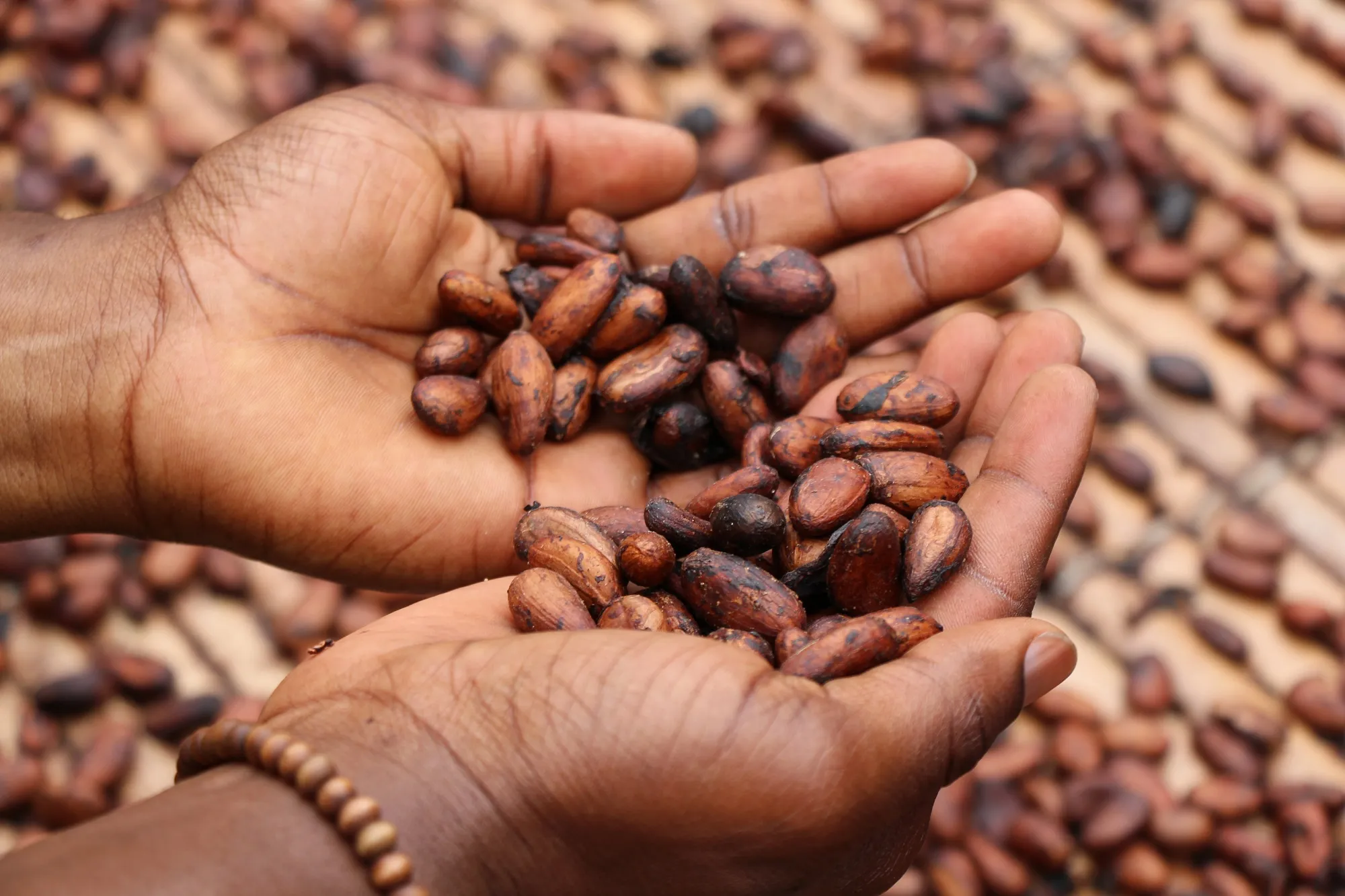
Nature Positive Farming: a win-win for smallholders and nature
Smallholders are responsible for 90% of rubber production and for up to half of the world’s palm oil production. Through Nature Positive Farming, HCV Network empowers small farmers to embed ecosystem and biodiversity protection in their work.
A new programme from the HCV Network empowers small farmers to embed ecosystem and biodiversity protection in their work
Tropical deforestation is usually associated with images of bulldozers making their way through large swathes of forests for large-scale plantations by big agribusinesses. Yet smallholders and small and medium enterprises also put pressure on forests by growing commodities and local food crops. Recently launched by the HCV Network, the Nature Positive Farming programme aims to help small farmers proactively address deforestation and ecosystem conversion, engaging smallholders on conversion frontiers to change their practices; this will help small farmers to be accepted by supply chains requiring them to work sustainably, and to limit the clearing of valuable ecosystems.
Globally, smallholders are responsible for 90% of rubber production and for up to half of the world’s palm oil production. Often, poor, small farmers face low productivity issues and practice extensive agriculture, clearing forests and other valuable ecosystems in constant search of new land to cultivate.
And while supply chain companies have been working to halt deforestation and boost responsible commodities’ production through certification, traceability, and supplier monitoring of their large, direct suppliers, they have not been able to effectively reach and engage independent smaller actors on conversion frontiers. This ultimately undermines companies’ need to demonstrate their sustainable supply chain when sourcing from smallholders.
Nature Positive Farming in a nutshell
Nature Positive Farming (NPF) is a participatory, flexible, rapid response solution for helping small farmers halt ecosystem conversion and maintain High Conservation Values, in line with company commitments and policies. NPF is most applicable to producers who are on conversion frontiers and are neither certified to a sustainability scheme or management units. It can be adapted to any agricultural commodity and in various regions. NPF is not a certification – it can work standing alone, it can be part of jurisdictional approaches or as a step towards certification. To work for smallholders, NPF is designed to be straightforward, and engagement-based, combining simplified HCV procedures with monitoring ecosystem maintenance over specific timeframes.
Training smallholders to identify which natural ecosystems and HCVs they should protect is central to NPF. The programme guides farmers to act with precaution regarding habitats, species, and ecosystem services. It equips them to identify new land for cultivation without loss of habitats, identify species that are threatened by agricultural encroachment and valuable ecosystem services that habitats such as peatlands or wetlands provide. Farmers under the NPF programme have ownership, understand the local impact of their crops and how they can mitigate them, make conservation commitments, and receive incentives and support to maintain and monitor the valuable habitats, species, and ecosystem services.
NPF benefits
By adapting precautionary practices to local contexts and knowledge together with smallholders, and by supporting plans for mitigation and monitoring, NPF can engage farmers in the long run, and bring benefits across commodities’ supply chains. NPF will increase collaboration between companies and their small suppliers and boost transparency of their operations and conservation efforts.
Rolling the NPF programme will require companies to work with representatives in the field – NGOs, civil society, etc – and further down the line with trainers who will support the farmers directly. In the first phase, farmers will make commitments for three years, during which NPF will implement improvements, boost awareness raising and build local leadership, while offering timely incentives to farmers.
“Addressing land clearing of intact high value ecosystems is complex and challenging, but provides greater benefits for biodiversity conservation and climate change mitigation. NPF is a simple tool to halt conversion by supporting smallholders take conservation decisions based on informed consent, and drive continuous improvement,” says Olivia Scholtz, senior project manager at HCV Network.”
With investment from the Consumer Goods Forum (CGF)the first NPF pilot will be ran with oil palm smallholder producers in the district of Siak Pelalawan, Indonesia, as part of the Siak Pelalawan Landscape Programme (SPLP), a private sector-driven initiative to promote sustainable palm oil production in two districts in Riau Province, Indonesia.
At the end of 2020, The Consumer Goods Forum (CGF) Forest Positive Coalition offered collective financial support to the SPLP as part of its landscape engagement strategy, which seeks to support important forest conservation and community engagement work at the local level that will drive help positive change towards a forest positive future.
"CGF Forest Positive Coalition members recognise that to improve realities on the ground we need to go beyond our own individual supply chains and work together at a landscape level with relevant stakeholders. We are pleased to support through our first collective investment to enable the continuation and expansion of the important work of the Siak Pelalawan Landscape Program." - Natasha Schwarzbach, Global Sustainable Commodities, PepsiCo, and Anna Turrell, Head of Environment, Tesco, the two Co-leads of the Coalition's Landscape Engagement Working Group
There is an ever-increasing urgency to address the on-going conversion by smallholders on the frontiers of intact ecosystems as part of nature and forest positive global ambitions.
NPF provides an operational tool for companies and initiatives to connect with smallholders who are still marginalised from sustainability supply chains; building farmer capacity and the business case for sustainable production while actively halting further ecosystem loss.
Related Posts
Protegiendo el carácter ambiental y social único del sureste de México con el Enfoque de AVC
Hace dos años, HCVN y FEMEXPALMA firmaron un acuerdo de cooperación para promover prácticas sostenibles de producción de aceite de palma a través de la conservación, el desarrollo de capacidades y la divulgación. Hoy, el involucramiento de los pequeñosproductores se ha vuelto esencial en la protección de los Altos Valores de Conservación.
Read MoreProtecting southeastern Mexico’s unique environmental and social character using the HCV Approach
Two years ago, HCVN and FEMEXPALMA signed a cooperation agreement to promote sustainable practices in palm oil production through conservation, capacity building, and outreach. Today, the contributions of small-scale producers have become essential in the protection of High Conservation Values.
Read MoreDébloquer des incitations pour des solutions fondées sur la nature avec les communautés forestières
L'outil Forest Integrity Assessment (FIA) est une approche de liste de contrôle simple et conviviale conçue pour permettre aux gestionnaires de terres et à d'autres non-biologistes d'effectuer des estimations rapides et efficaces de l'état de la biodiversité forestière.
Read MoreOur Partnerships
Alongside many global initiatives, our work with partners promotes practices that help meet the global Sustainable Development Goalsand build a greener, fairer, better world by 2030.


Femexpalma
In April 2022, FEMEXPALMA and the HCV Network signed a 5-year cooperation agreement to promote sustainable production of palm oil in Mexico. FEMEXPALMA is a Mexican independent entity that represents palm production at the national level and promotes the increase of productivity in a sustainable way.
With global markets becoming stricter, for Mexican producers to be able to export to key markets such as the European Union, they must meet strict requirements such as certification by the Roundtable on Sustainable Palm Oil (RSPO). To be certified by RSPO, the HCV Approach must be applied prior to the establishment of any new oil palm plantations. With this cooperation agreement, the HCV Network will support FEMEXPALMA’s members and allies to design better strategies to identify, manage and monitor High Conservation Values and support smallholders to achieve RSPO certification and implement good agricultural practices.


High Carbon Stock Approach
The High Carbon Stock Approach (HCSA) is an integrated conservation land use planning tool to distinguish forest areas in the humid tropics for conservation, while ensuring local peoples’ rights and livelihoods are respected.
In September 2020, HCV Network and the HCSA Steering Group signed a five-year Memorandum of Understanding (MoU) to strengthen their collaboration to conserve forests and uphold community rights in tropical forests. The HCS and HCV Approaches are cornerstones of corporate no deforestation and conservation commitments, and increasingly for actors working at different scales. The collaboration aims to further support effective implementation of these commitments through increased uptake of the HCV and HCS tools.
Through this MoU, HCSA and HCVRN are pursuing two main strategic goals:
- Strive to promote the application of the two approaches in tropical moist forest landscapes and explore further opportunities for collaboration.
- Ensure that, where the two approaches are applied together, this happens in a coordinated, robust, credible, and efficient manner, so that HCS forests and HCVs are conserved, and local peoples’ rights are respected.


World Benchmarking Alliance
From May 2022, the HCV Network is an ally at the World Benchmarking Alliance (WBA). WBA is building a diverse and inclusive movement of global actors committed to using benchmarks to incentivise, measure, and monitor corporate performance on the SDGs, and will assess and rank the performance of 2,000 of the world’s most influential companies against seven systems of transformation by 2023.
The scope of WBA’s circular transformation was expanded to cover nature and biodiversity as recognition of the need for greater understanding, transparency and accountability of business impact on our environment. The WBA Nature Benchmark was launched in April 2022, which will be used to rank keystone companies on their efforts to protect our environment and its biodiversity. As HCV Areas are recognised as key areas important for biodiversity, companies that publicly disclose their actions to identify and protect HCVs will contribute to the assessment of their performance against the benchmark.
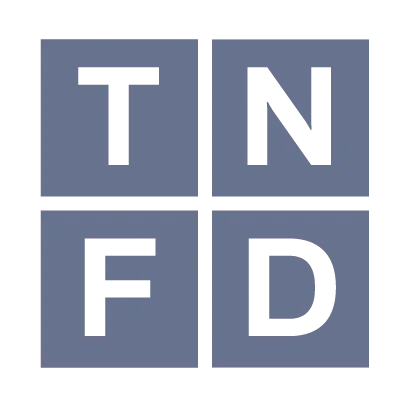

Taskforce on Nature-related Financial Disclosures - TNFD
The Taskforce on Nature-related Financial Disclosures (TNFD) is a global, market-led initiative, established with the mission to develop and deliver a risk management and disclosure framework for organizations to report and act on evolving nature-related risks, with the aim of supporting a shift in global financial flows away from nature-negative outcomes and toward nature-positive outcomes.
In April 2022, the HCV Network joined the TNFD Forum. The TNFD Forum, composed of over 400 members, is a world-wide and multi-disciplinary consultative network of institutional supporters who share the vision and mission of the task force.
By participating in the Forum, the HCV Network contributes to the work and mission of the taskforce and help co-create the TNFD Framework which aims to provide recommendations and advice on nature-related risks and opportunities relevant to a wide range of market participants, including investors, analysts, corporate executives and boards, regulators, stock exchanges and accounting firms.


Aquaculture Stewardship Council
The Aquaculture Stewardship Council (ASC) is the world’s leading certification scheme for farmed seafood – known as aquaculture – and the ASC label only appears on food from farms that have been independently assessed and certified as being environmentally and socially responsible. In 2021, the HCV Network and ASC formalised their collaboration through a Memorandum of Understanding (MoU). The MoU represents the first step in a fruitful relationship aimed at conserving HCVs in aquaculture. Although, existing guidance on the use of the HCV Approach currently focuses mainly on forestry and agriculture, the HCV Approach is however generic, and in principle also applicable to aquatic production systems. Through this MoU, this is recognised by the Aquaculture Stewardship Council (ASC) in their ASC farm standard, in which the protection of HCV areas is mentioned in the context of expansion


Accountability Framework Initiative
The Accountability Framework initiative (AFi) is a collaborative effort to build and scale up ethical supply chains for agricultural and forestry products. Led by a diverse global coalition of environmental and human rights organizations, the AFi works to create a “new normal” where commodity production and trade are fully protective of natural ecosystems and human rights. To pursue this goal, the coalition supports companies and other stakeholders in setting strong supply chain goals, taking effective action, and tracking progress to create clear accountability and incentivize rapid improvement. In July 2022, the HCV Network joined AFi as a Supporting Partner. AFi Supporting Partners extend the reach and positive impact of the AFi by promoting use of the Accountability Framework by companies, industry groups, financial institutions, governments, and other sustainability initiatives, both globally and in commodity-producing countries.


Biodiversity Credit Alliance
The Biodiversity Credit Alliance (BCA) is a global multi-disciplinary advisory group formed in late 2022. Its mission is to bring clarity and guidance on the formulation of a credible and scalable biodiversity credit market under global biodiversity credit principles. Under these principles, the BCA seeks to mobilize financial flows towards biodiversity custodians while recognising local knowledge and contexts.
The HCVN joined the BCA Forum in August 2023 to learn more from the many organizations already coming together to find effective pathways to opening up credit-based approaches, and how to contribute our knowledge and experience of years of working in a practical way, often with global sustainability standards and their certified producers, to protect what matters most to nature and people.
.webp)
.webp)
Nature Positive Forum
The Nature Positive Initiative is a group of stakeholders coming together to find ways to unlock success and achieve Nature Positive - a global societal goal defined as ‘halt and reverse nature loss by 2030 on a 2020 baseline, and achieve full recovery by 2050’, in line with the mission of the Kunming-Montreal Global Biodiversity Framework.
Core work includes preserving the integrity of ‘Nature Positive’ as a measurable 2030 global goal for nature for business, government, and other stakeholders, and providing the tools and guidance necessary to allow all to contribute. The initiative also advocates for the full implementation of the Kunming-Montreal Global Biodiversity Framework by governments and other stakeholders.
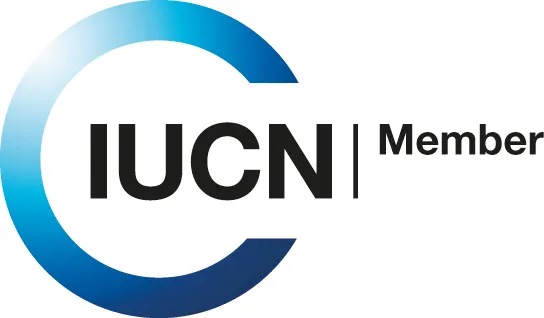

IUCN
IUCN is a membership Union uniquely composed of both government and civil society organisations. It provides public, private, and non-governmental organisations with the knowledge and tools that enable human progress, economic development, and nature conservation to take place together.
Created in 1948, IUCN is now the world’s largest and most diverse environmental network, harnessing the knowledge, resources and reach of more than 1,400 Member organisations and around 15,000 experts. It is a leading provider of conservation data, assessments, and analysis. Its broad membership enables IUCN to fill the role of incubator and trusted repository of best practices, tools, and international standards.
IUCN provides a neutral space in which diverse stakeholders including governments, NGOs, scientists, businesses, local communities, indigenous peoples’ organisations, and others can work together to forge and implement solutions to environmental challenges and achieve sustainable development.
Working with many partners and supporters, IUCN implements a large and diverse portfolio of conservation projects worldwide. Combining the latest science with the traditional knowledge of local communities, these projects work to reverse habitat loss, restore ecosystems, and improve people’s well-being.

Get Involved
Our Mission as a network is to provide practical tools to conserve nature and benefit people, linking local actions with global sustainability targets.
We welcome the participation of organisations that share our vision and mission to protect and enhance High ConservationValues and the vital services they provide for people and nature. By collaborating with the Network, your organisation can contribute to safeguarding HCVs while gaining valuable insights and connections that support your sustainability goals.
We are seeking collaborative partners to help expand and enhance our work, as well as talented professionals who can join the growing Secretariat team, and for professionals who can contribute to the credible identification of High Conservation Values globally.
Join us in securing the world’s HCVs and shaping a sustainable future.
